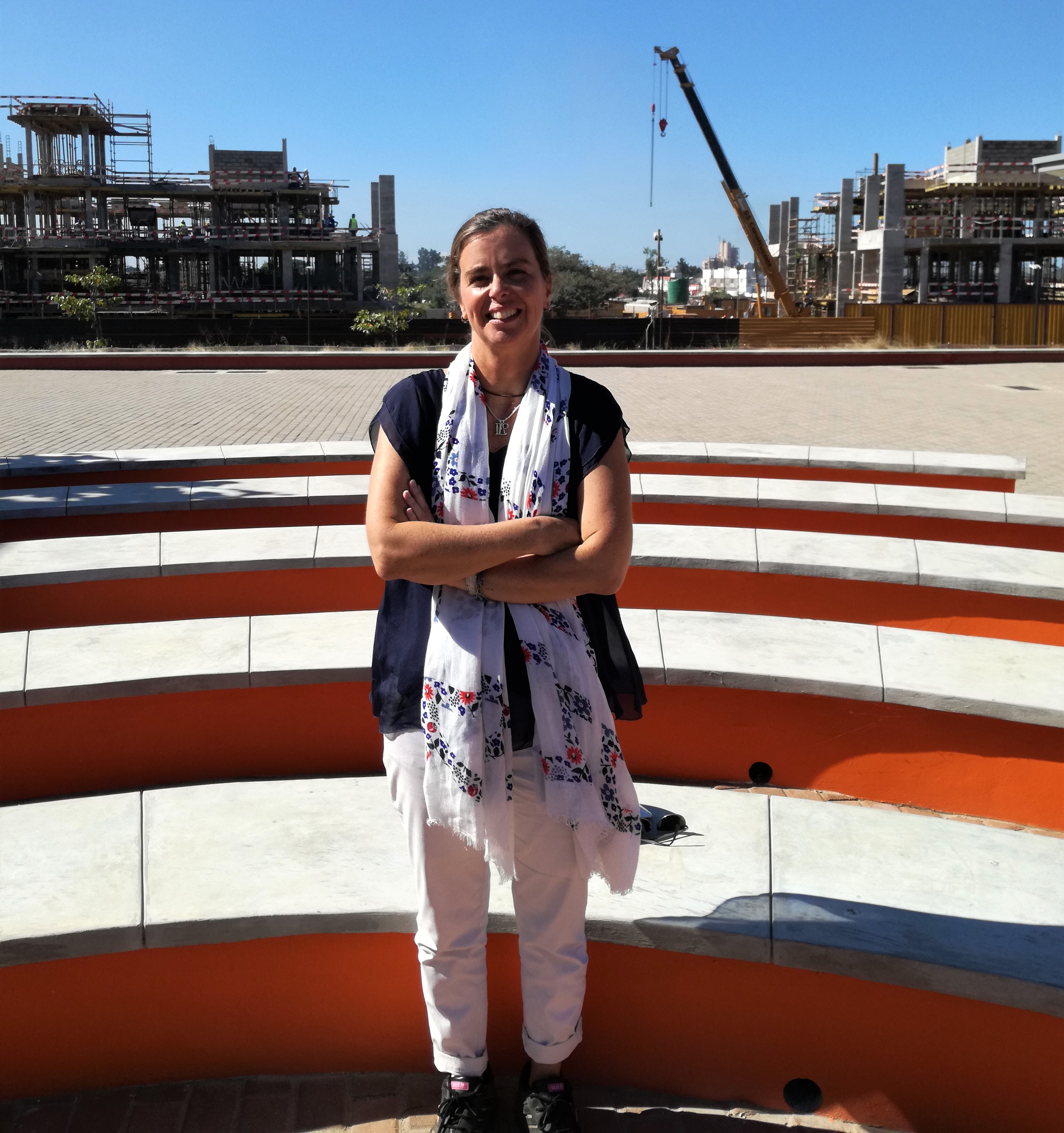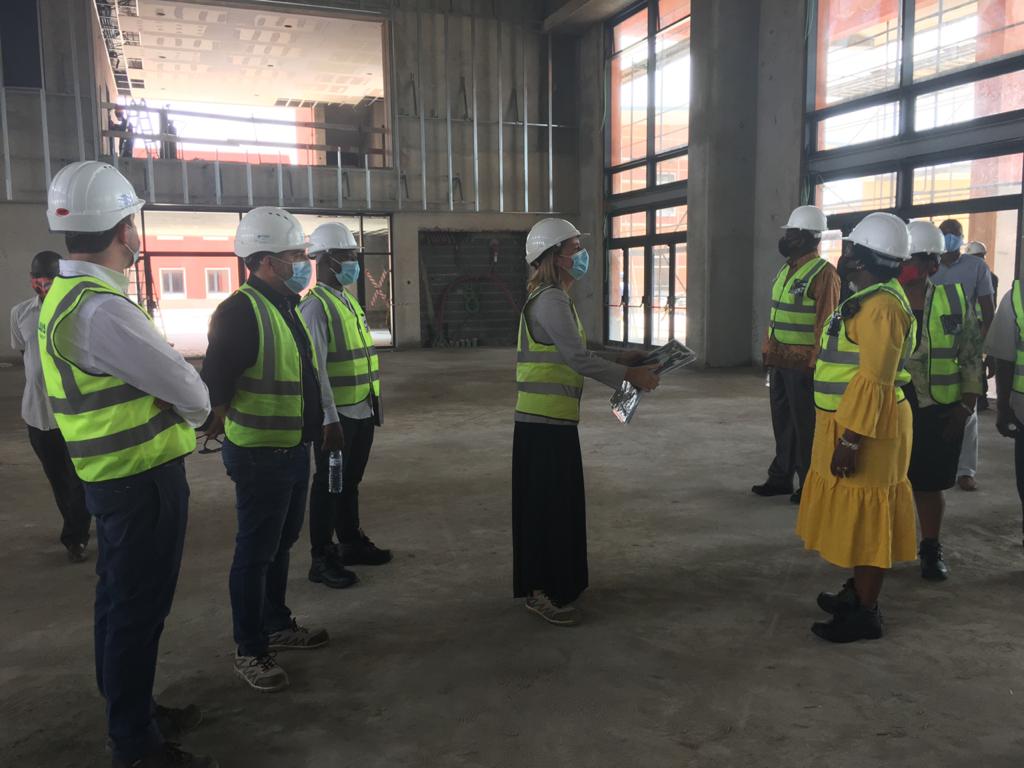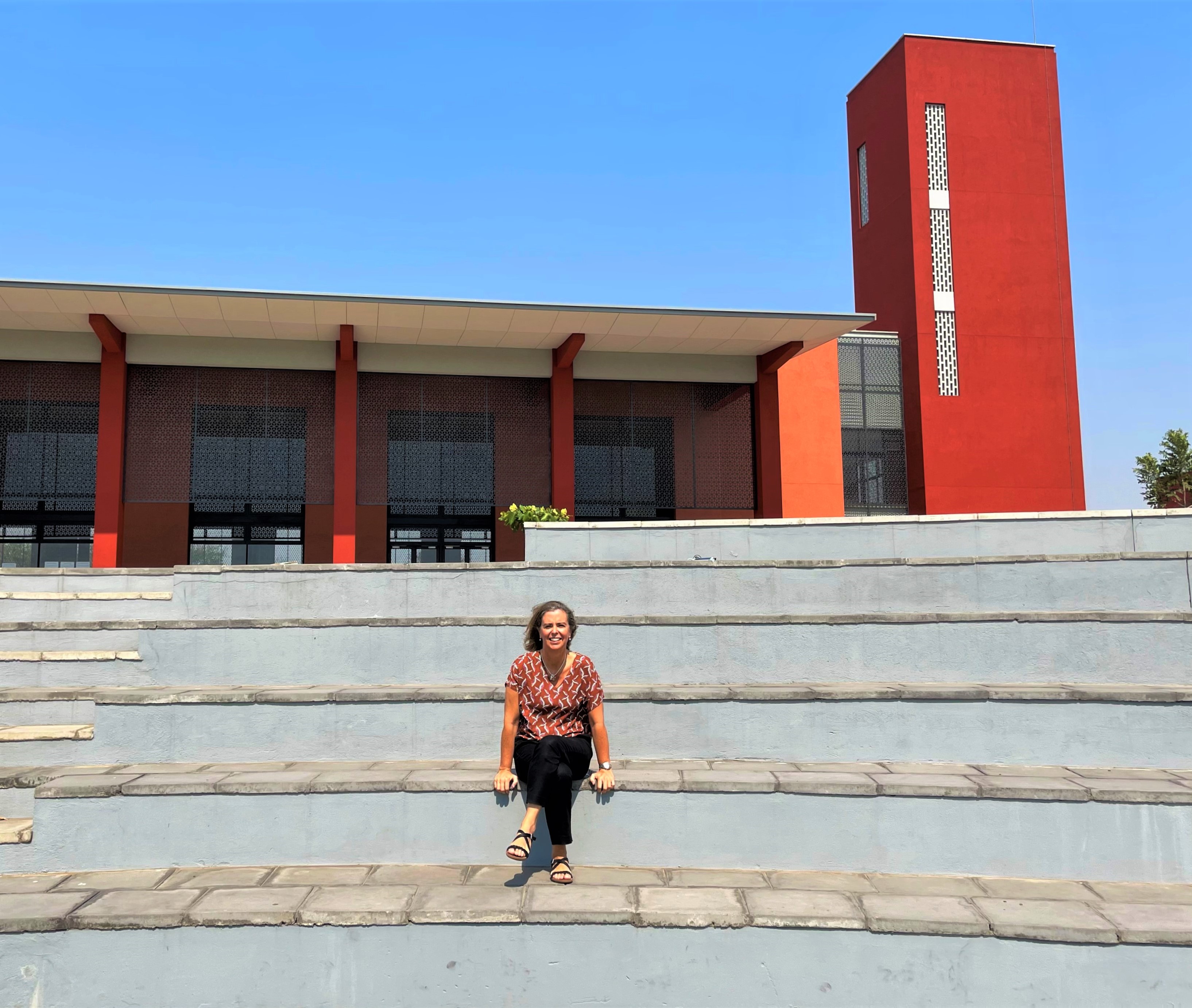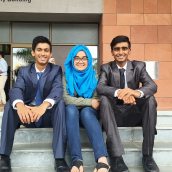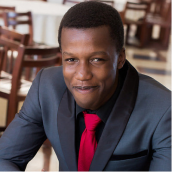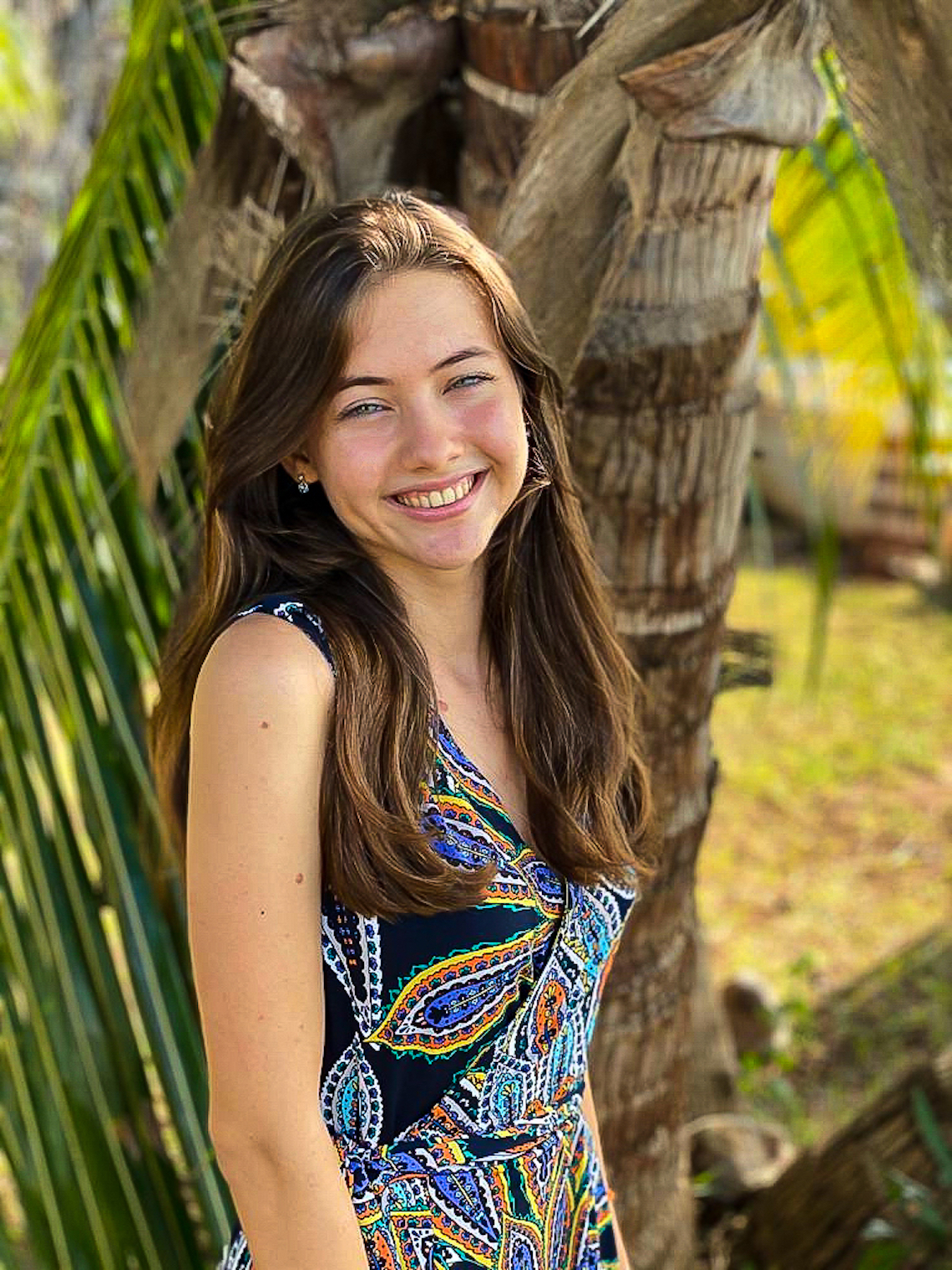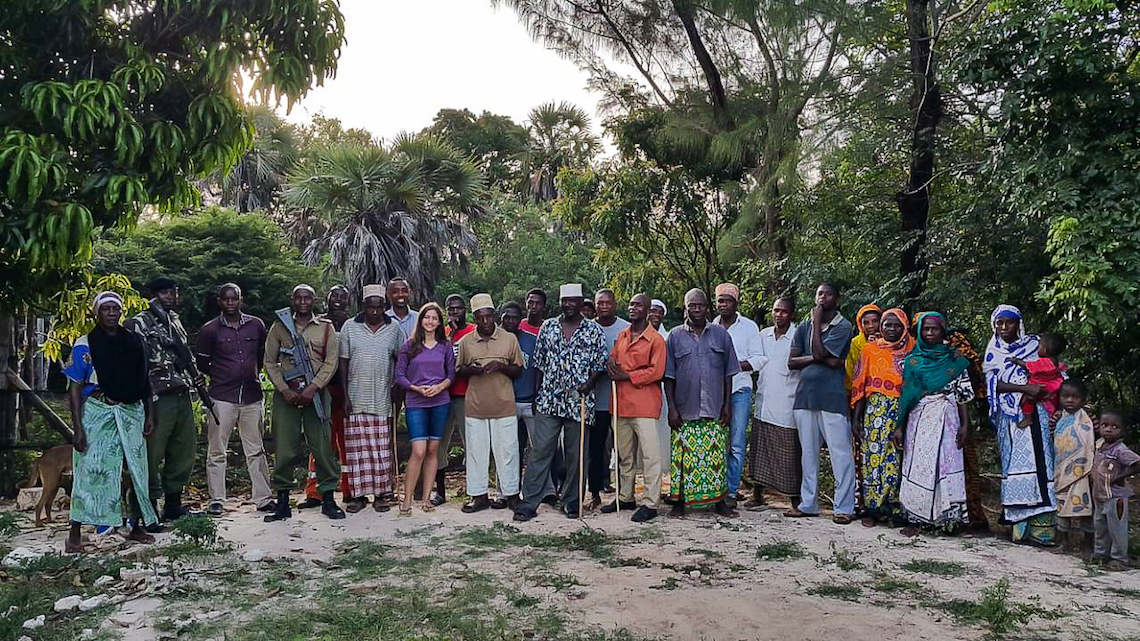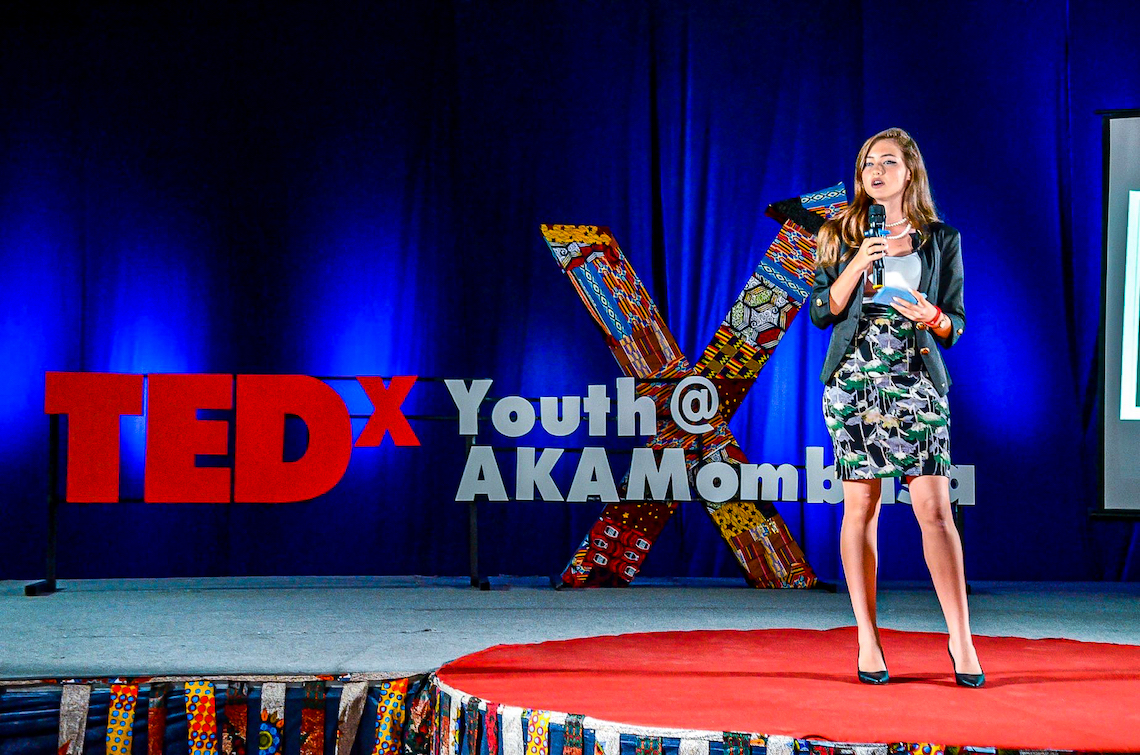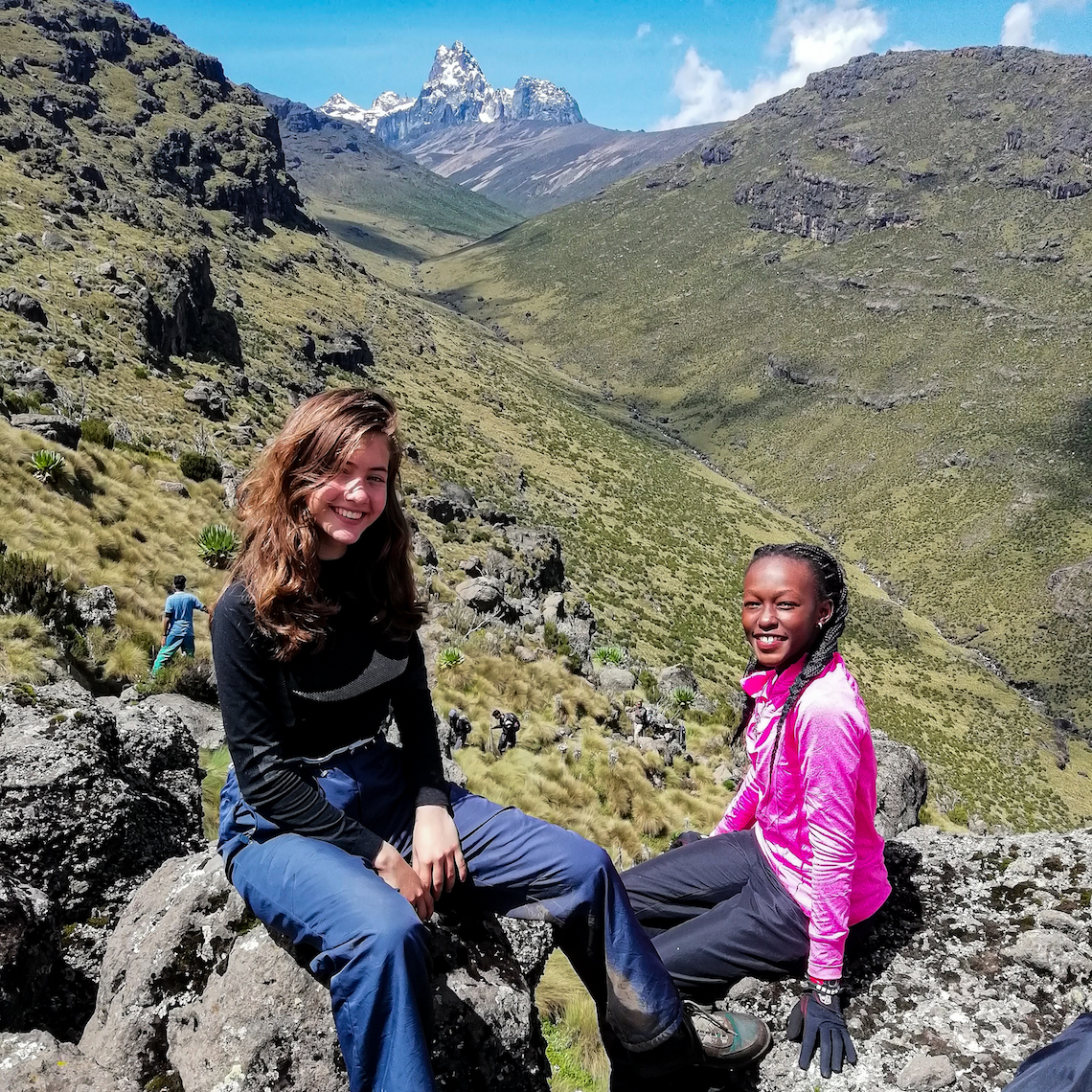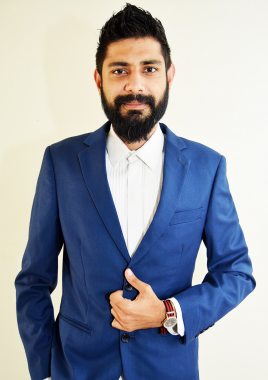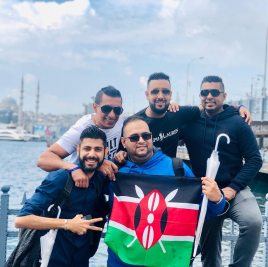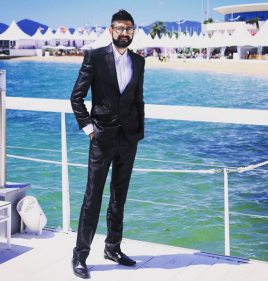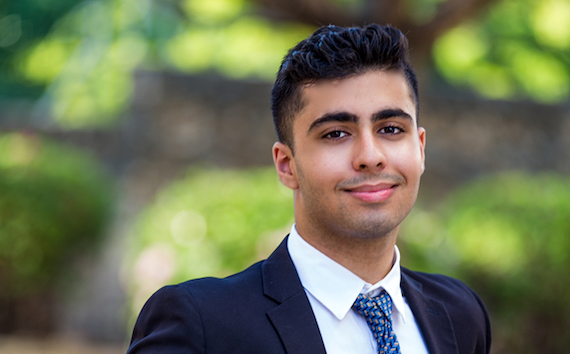
International Baccalaureate
The Aga Khan Academy Maputo follows the principles of the International Baccalaureate (IB) and is preparing to become an authorised IB World School.
The International Baccalaureate is a non-profit educational foundation, motivated by its mission to create a better world through education.
The three IB programmes for students aged 3 to 19 help develop the intellectual, personal, emotional and social skills to live, learn and work in a rapidly globalising world.
Aims of the IB Programme
Founded in 1968, the International Baccalureate currently works with 3,423 schools in 141 countries to develop and offer their programmes to over one million students.
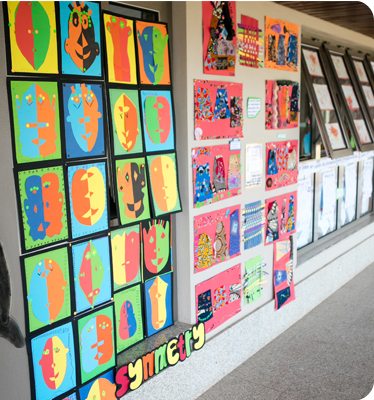 Their mission statement declares: "The International Baccalaureate aims to develop inquiring, knowledgeable and caring young people who help to create a better and more peaceful world through intercultural understanding and respect."
Their mission statement declares: "The International Baccalaureate aims to develop inquiring, knowledgeable and caring young people who help to create a better and more peaceful world through intercultural understanding and respect."
"To this end the organisation works with schools, governments and international organisations to develop challenging programmes of international education and rigorous assessment. These programmes encourage students across the world to become active, compassionate and lifelong learners who understand that other people, with their differences, can also be right."
The IB is more than its educational programmes and certificates. At heart they are motivated by a mission to create a better world through education.
They value their hard-earned reputation for quality, for high standards and for pedagogical leadership. They achieve their goals by working with partners and by actively involving stakeholders, particularly teachers.
The three programmes are:
Primary Years Programme
The Primary Years Programme (PYP) focuses on the development of the whole child, addressing social, physical, emotional and cultural needs, while giving students a strong foundation in all of the major areas of knowledge.
Through the PYP, children become aware of and sensitive to the points of view of people in other parts of the world.
Middle Years Programme
The Middle Years Programme (MYP) integrates the study of all the major disciplines, including languages, sciences, literature and the social sciences, mathematics, arts, technology and physical education.
The MYP normally includes a service component designed to encourage students to become involved with their communities.
Diploma Programme
The Diploma Programme (DP) is a two-year course of study that prepares students for university. All DP students study languages, a social science, an experimental science, mathematics and, usually, an arts subject.
At the same time as it provides a form of academic passport, the DP generally fulfils the requirements of a student's national education system. Each student's performance is evaluated by independent examiners and measured by his or her levels of knowledge and skills relative to set standards applied to all schools.
For further information please visit the IB website.
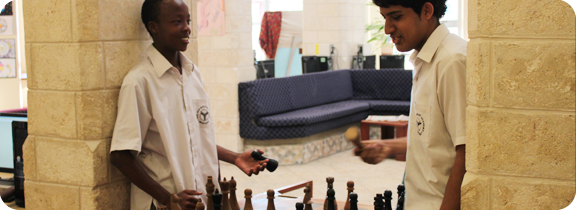
International Baccalaureate
The Aga Khan Academy, Dar-es-Salaam follows the principles of the International Baccalaureate (IB) and is preparing to become an authorised IB World School.
The International Baccalaureate (IB) is a non-profit educational foundation, motivated by its mission to create a better world through education.
The three IB programmes for students aged 3 to 19 help develop the intellectual, personal, emotional and social skills to live, learn and work in a rapidly globalising world.
Aims of the IB Programme
Founded in 1968, the International Baccalureate currently works with 3,423 schools in 141 countries to develop and offer their programmes to over one million students.
Their mission statement declares: "The International Baccalaureate aims to develop inquiring, knowledgeable and caring young people who help to create a better and more peaceful world through intercultural understanding and respect.
"To this end the organisation works with schools, governments and international organizations to develop challenging programmes of international education and rigorous assessment. These programmes encourage students across the world to become active, compassionate and lifelong learners who understand that other people, with their differences, can also be right."
The IB is more than its educational programmes and certificates. At heart they are motivated by a mission to create a better world through education.
They value their hard-earned reputation for quality, for high standards and for pedagogical leadership. They achieve their goals by working with partners and by actively involving stakeholders, particularly teachers.
The three programmes are:
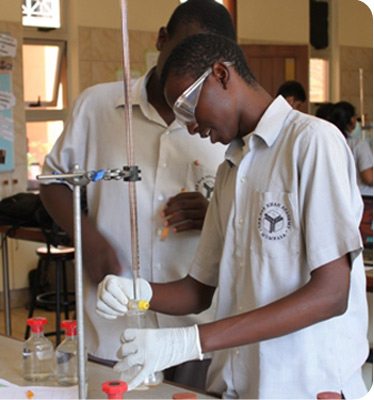 Primary Years Programme
Primary Years Programme
The Primary Years Programme (PYP) focuses on the development of the whole child, addressing social, physical, emotional and cultural needs, while giving students a strong foundation in all of the major areas of knowledge.
Through the PYP, children become aware of and sensitive to the points of view of people in other parts of the world.
Middle Years Programme
The Middle Years Programme (MYP) integrates the study of all the major disciplines, including languages, sciences, literature and the social sciences, mathematics, arts, technology and physical education.
The MYP normally includes a service component designed to encourage students to become involved with their communities.
Diploma Programme
The Diploma Programme (DP) is a two-year course of study that prepares students for university. All DP students study languages, a social science, an experimental science, mathematics and, usually, an arts subject.
At the same time as it provides a form of academic passport, the DP generally fulfils the requirements of a student's national education system. Each student's performance is evaluated by independent examiners and measured by his or her levels of knowledge and skills relative to set standards applied to all schools.
For further information please visit the website of the International Baccalaureate at http://www.ibo.org.
Laura Brandão: Building the AKA Maputo campus from the ground up
Laura, who is originally from Portugal and a civil engineer by trade, joined the AKA Maputo in July 2017. She began her involvement with the Academy’s construction project in 2012 as the general manager of an outsourced project management company.
“It’s interesting because, as the general manager of my former company, I was involved since the inception of the Academy as I was appointed to the project management of the AKA Maputo’s first phase, which is the phase that represents the opening of the Academy’s Early Years Centre,” Laura said. “In this way, I have been involved since the very beginning of the Academy’s construction, and this has equipped me with both an internal and external perspective of the Academy.”
Laura attained her undergraduate degree in civil engineering from Instituto Superior Técnico in Lisbon, Portugal. She then moved to Leuven, Belgium in pursuit of a Master’s qualification in the conservation of historic towns and buildings at the Katholieke Universiteit.
Upon the completion of her master’s degree, Laura returned to Portugal where she jump-started her career in project management. “I started my career in an area that slightly differed from my master’s qualification,” she said. “This is because, at the time, Portugal was not very focused on the restoration of historical buildings and monuments. So, I started my career in project management.”
The company Laura worked for at the time later invited her to join their newly-launched branch in Mozambique. She arrived in Mozambique in September 2010 and worked for this company until 2017 as a general project manager, where she did a lot of project management work in Mozambique.
In 2017, the company decided to cease their activity in Mozambique but Laura wanted to remain in the country. Every cloud has a silver lining, as it was at this time that Laura received an invitation to join the AKA Maputo as the Academy’s senior project manager and client representative.
"A reputable team of international and local architects and engineers have designed the Academy to be in line with Aga Khan Development Network’s pursuit of excellence in both the physical facilities, as well as the quality of education intended to be imparted at the finished facility,” Laura said. “I am glad I was selected to execute this team's vision for the AKA Maputo."
Praising the overall mission and vision of the Aga Khan Academies, Laura places great emphasis on the important role that the AKA Maputo plays in the betterment of the Mozambican educational sector and, ultimately, in the Mozambican society.
“This is an exceptional project because of its concept, dimension, challenge to have been built in Mozambique and, on top of all, the purpose that it develops,” Laura said. “The mission of educating and developing students to become highly qualified and socially responsible professionals and leaders, which Mozambique needs to support its socio-economic development, is what makes it an absolute honour to have been chosen to lead this project. It is an emblematic project.”
With the AKA Maputo’s significantly diverse student and staff population, Laura has found engaging with multinational colleagues to be interesting and positively challenging. She gained a thorough understanding of how the Academy’s leadership team perceives the Academy and has applied this to the construction of the campus.
“Sometimes it can be challenging because each individual has their own ideas, and sometimes it can be difficult to incorporate all of these ideas in the project development,” Laura said. “But, overall, I think my colleagues are satisfied with my work as we always try to include all of their ideas within our budget. Ultimately, the buildings are for them, for the teachers, staff members and, on top of all, for the students.”
However, the biggest challenge Laura faced was the Academy’s construction since international lockdowns eased due to COVID-19. Reflecting back, Laura said she and her team had to ensure the pandemic did not severely impact the development of the AKA Maputo. This required strong team collaboration, dedication and mutual support.
“Post-COVID-19 on a global level, particularly in terms of material costs, import costs and the lack of transportation, was quite difficult to digest and it was a fight,” Laura said. “Nevertheless, the fact that we did not have a single positive case during the pandemic is very rewarding. And although I am leading the project, it has been a great team effort.
“I have received a lot of support from my director in Geneva and I think, all together, we are very successful. And when I say we are a team, I don’t only mean the construction team – design team, project management team, contractors and project colleagues – but I mean the Academy in its entirety as led by the Head of Academy, who closely collaborated with me to bridge the gap between construction and school.”
“The Academy was planned in phases to allow for the school to grow during construction, and the manner in which the academic team always understood the "conflicts" between construction and the normal school life were fantastic. So from the leadership team, right down to each and every colleague, we are all a team and should be very happy at the results that we have achieved amidst these uncertain times.”
Reflecting on the various beautiful spaces and facilities at the AKA Maputo, Laura says it’s rather difficult to choose only one building as her favourite. But, aside from the Court of Palms – an area on campus that has 24 Royal palms standing tall and proud – one of her favourite spaces at the Academy is the Moyo, which means heart in Swahili. The Moyo is the Academy’s amphitheatre where whole school assemblies and other fun events are hosted.
“For me, each building in the Academy has its own story and they are all very dear to me,” she said. “But I think that the Moyo is, in fact, the heart of the Academy, and the contrast of the Moyo against the rest of the buildings at the Academy is the most emblematic area in my eyes.”Being directly involved in the development of the AKA Maputo from the start, Laura has observed how the rapid growth of the Academy has positively impacted the students and staff, alike. “It has been very gratifying to witness the joy of the students and all of the school staff,” Laura said. “They are amazed at the level of facilities that are being provided at the Academy. I have no doubt in mind that the Aga Khan Academy Maputo is the school with the highest quality infrastructures in the country.”
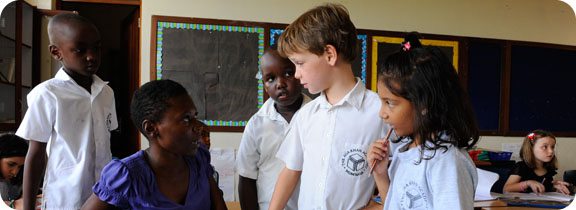
Primary Years Programme
The Aga Khan Academy Mombasa was authorised to offer the Primary Years Programme (PYP) curriculum by the International Baccalaureate in April 2007.
Foundations for lifelong learning
We offer the PYP for students in years 1–5 (aged 6–10). The programme focuses on the development of the whole child. It is geared towards creating independent, confident and respectful learners.
Our classroom curriculum and after-school activities address the children's social, physical, cultural and ethical development while giving them a strong foundation in all the major areas of knowledge.
The curriculum consists of five essential elements:
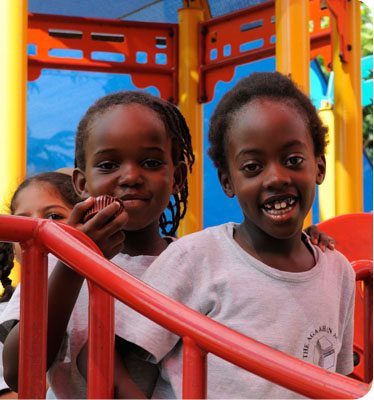
- Concepts
- Knowledge
- Skills
- Attitude
- Action
The core subjects we cover include English language, mathematics, social studies, science and technology. The Primary Years Programme at the Aga Khan Academy Mombasa also includes a beginning computing course, physical education, music, art and Kiswahili.
Students and teachers explore questions in all subject areas using an interactive, student-centred approach. The knowledge element of the curriculum is enhanced by six themes that are studied across the various subject disciplines. These are:
- Who we are
- Where we are in place and time
- How we express ourselves
- How the world works
- How we organise ourselves
- Sharing the planet
The PYP develops well-rounded students who are well versed in all areas of knowledge. They learn to be intellectually curious, principled, caring, open-minded, well balanced and reflective learners.
Please click here to learn more about the PYP Exhibition, which takes place in year 5. The Exhibition is a capstone experience for each PYP student.
Please visit the Admission Requirements page or contact us to find out more about applying to the PYP at the Academy.
Dania Quadri (Class of 2014): Giving back as an alumna
“Being part of an open-minded community that encouraged challenging what we were taught, the willingness to accept one another and inspire each other to grow constantly, was very refreshing. I credit these experiences for much of whom I am today.”
– Dania Quadri, Class of 2014
She was also instrumental in helping to organise the Mental Health Awareness Week (MHAW) in September 2016.
“As I aspire to be a doctor, I feel that it is necessary to acquire experience in a role that demands care, patience and a great deal of understanding,” she explains. “I knew teaching and organising the MHAW would contribute to my personal growth and career aspirations but it would also allow me to give back to my school – something very important to me.”
Through MHAW, Dania was able to contribute to reducing the stigma associated with mental illness within the Academy community.
“As a student myself, I know how hard it is for students who are mentally unwell to cope with studies and social life at school," she said. "I wanted to spread awareness about it being perfectly normal to feel mentally unwell, to know the difference between clinical illness and just a rough emotional phase, and to encourage students to seek help and advice if they are feeling low.”
Her internship made her realise she was more passionate about education than she thought. She particularly enjoyed the responsibility an educator has in developing a student’s personality and knowledge.
“As a teacher, it was interesting to observe school from the other side," she said. "Spending time with all the teachers made me realise how much they actually care for their students. The support is incredible at the Academy and different learning abilities are not only understood but truly valued.”
Virtual Open Days
Visiting a school is usually all about the people; being able to get a sense of the teachers who will be guiding and nurturing your child, seeing the current students and trying to envisage your child amongst their new peer group! Whilst that is not possible at the moment due to the global pandemic, we at the Aga Khan Academy Hyderabad still very much want to meet you. As a group, we have put together a video that will allow you to meet the team and gain further information about the school through the website.
Our Virtual Open Days (VOD) aim to give you an introduction to the Academy, but we also understand there is plenty left to discuss beyond the information provided and the staff is eagerly looking forward to speaking to you in person. The event is being hosted by the Admissions team and each session is divided into a virtual tour of the school hosted by our students and members of staff, followed by a Q&A with our leadership team.
Register to join one of our upcoming Virtual Open Days!
Click here to express your interest to be a part of our Virtual Open Days in February. Our Admissions team will get back to you when the dates are confirmed.
The Aga Khan Academy Hyderabad is a special place where a sense of community and family runs through everything that we do. We hope this Virtual Open Day gives you an idea of our vision, our people and our campus. We look forward to welcoming you in person in the near future. We hope to see you soon!
For further information, please feel free to reach out to our Admissions team
Joshua Ekirikubinza's Speech - AKA, Mombasa's Graduation, 2015
Teachers, I would like to begin with you. I am not going to thank you right now. However, I will start by saying sorry. For every time we ducked when we saw you coming down the hall, knowing we were not going to hand in that piece of homework. For every time we extended that deadline so far that it became inexistent. For every time we treated the piece of paper we are about to receive as your problem and not ours, and for every opportunity to thank you that we missed, thank you for being there from the beginning and here with us at the very end.
Parents, thank you. Those two words come nowhere near expressing the gratitude I know that every single student seated in front of you feels. Thank you for the support, whether financial or emotional. Do not worry; the product of your labor is awe-inspiring. In front of you sit the pioneers of the next generation, the heroes who will shape the world and leave a resplendent legacy for decades to come. DP2s, I just made a lot of promises to your parents, your job is to turn those incredibly romantic notions I sent flying their way into reality. And while it may seem like I just placed an immense task on your shoulders, I only ask of you what you are more than capable of.
In two years you have overcome every single obstacle that the IBO managed to throw at you, even though I know you imagined they sat in a boardroom discussing how to make your lives as difficult as possible. Now you are at your graduation and I know a lot of you are probably wondering what it was all for. I sincerely hope you do not expect me to give you that answer. In fact I hope you realize that no one in this room or outside it can give you that answer. As cliché as it is to say, the only person who can answer that question is you. Why did you decide to do a program renowned for its rigor? I hope it is because somewhere inside yourself you believed that you do have the ability to do anything you set your mind to; which would make everything I promised earlier a piece of cake.
So if I have not made myself clear yet, the world is yours. It is yours to shape and mould, yours to save and re-vitalize or yours to ignore and let crumble. If there is one thing you should know going forward it is that you no longer have the luxury to sit back and watch. You had about eighteen years of your life to do just that and I hope you enjoyed it. Soon the decisions about the world we live in will be left up to you. Make sure that when you are attending the next generation’s graduation the legacy you hand over is one that you are proud of.
The way to such a legacy is of course no walk in the park. There will be challenges, but the greatest one, I believe, is the day you question how special you really are. The day you stop believing you can impact the world around you is the day that ability is eternally lost you. Do not let the world tell you what you can and cannot do. Do not subscribe to the bigotry and intolerance that runs rampant throughout the world, you are far too intelligent for that. Do not gauge your abilities by comparing yourself to someone else. If you look to your left or right you will find a classmate and a team mate, not your competition. You do not benefit from being better than the person sitting next to you. I do not often quote people because I am ambitious in that I hope to create a few of my own one day, but Ernest Hemingway once said “There is nothing noble in being superior to your fellow man; true nobility lies in being superior to your former self.” Thus the key to your success does not lie in being better than everyone but, and the administration in no way coerced me to say this, in having a growth mindset. Please do not be that dentist who argues you are more important than the engineer.
Be accepting of the people around you. You cannot hope to change the world if you cannot even begin to accept the people within it. We are different. That is a reality you will have to accept. Also, please remember when you re-shape the world you affect everyone. Every culture, every race, every ethnicity and every religion. It is a complex puzzle, remember that. You can only solve it if you understand it.
Do not your let your education amount to just a piece of paper. As the incredible sagacious Albert Einstein said, “Education is what remains after one has forgotten what one has learned in school.” When you read that over 8,000 people died in an earthquake in Nepal earlier this month, do you simply let that statistic ring through one ear and out the other? Or do you let such facts inform your decisions about what you want to do to change the world? Do not think accumulating wealth is the way you change the world either. If you think I am being dishonest then how about you consider that there are over 5 million millionaires in the US alone. There is a treat in it if you can name more than 100 of them. I believe you know less than 100 names because they have not done enough to change the world. Martin Luther King Junior died without any financial assets at all or a will, almost 50 years later we still revere him. In the end you deserve to have your name written down in the annals of history, not a checkbook.
Finally remember as wonderful as you are, there is only one of you. You are one piece in a seven billion piece puzzle. Try and fit as snuggly as possible, keep your elbows, knees and feet in a position that does not bother anyone else.
So as I conclude this intentionally overly verbose speech, I leave you with a simple fact. Those are crazy enough to believe they can change the world, are often the ones who do. So here’s to the crazy ones - we can disagree with them, hate them, love them, quote them glorify or vilify them. About the only thing you cannot do is ignore them because they change things. They push the human race forward. I hope that you are all crazy enough to do it.
Cinzia Torriani: The budding environmental activist
Growing up on Funzi Island, a settlement in Kenya, Cinzia Torriani, a Diploma Programme 1 student at the Aga Khan Academy Mombasa, has seen the impact climate change can have on the environment and the people within it.
“I saw the aquatic life in the bay that surrounded a part of the island deteriorate over time,” Cinzia said. “Fish disappeared from the easy view of the waters, dolphins, which would appear annually, stopped appearing, and I would even hear stories of animals that were once habitants of the bay as now a distant memory. Contrary to this, the number of fishermen stayed the same, and at some point, every small fish in the ocean was being caught to feed a fisherman’s family. I realised that a majority of the motives put in place on the island for helping the environment served little purpose towards establishing a feasible way forward to ensure locals, who depend on the ocean, would remain economically stable.”
By seeing this and her parents’ personal initiatives toward the environment, Cinzia channeled her energy into becoming an environmental activist, focusing on ways to better her environment while also keeping in mind the local community.
“My goal is to ensure sustainable economic and ecological development to consider both my love for my surroundings, but also the community,” Cinizia said.
Taking action
One of the first initiatives Cinzia made in relation to her goal happened a year ago during her Year 10 personal project, which allows students to collaborate with individuals in their local community to address an issue or challenge. Cinzia created an integrated farming system combining a fish farm, chicken farm and maize farm in a self-sufficient cycle. Through this system, human efficiency would be maximised; the harvest timeline would be effectively eradicated; and locals would be provided with an alternative and more productive way to get fish from the ocean.
“I was able to build this system and present it to the locals in my community while also further spreading the word about my personal project,” Cinzia said.
Following the completion of her personal project, Cinzia was able to further spread her message about the environment by speaking at the 2019 TEDxYouth event held at the Academy. In her talk, Cinzia spoke about the importance of fighting complacency in order for action to be taken toward the environment, while also discussing her personal project as a way of implementing a new agricultural system.
“This was one of the most thrilling and greatest memories I hold,” Cinzia said. “I was able to use my voice as a way to spread my opinions and ideas on what mattered to me to a group of people who were interested in listening. From this, my story was published in one of the nation’s newspapers, Business Daily, about my project, my TEDx talk and my future goals. This provided me with the opportunity to convey my message about environmental sustainability to a larger audience.”
During this academic year, Cinzia has taken steps to further her goal and spread awareness about the environment. This was seen during the Academy’s annual Peace Summit, which is a two-day event bringing together students from the Academy and around Mombasa to discuss peace and conflict resolution. The theme for this year’s Summit was “Climate Action for Peace” with Cinzia being selected as the female student lead for the event.
“The aim of the Summit was to take students through several thought-provoking and interactive activities to question their stand as activists for peace, linking this directly to the environment’s state,” Cinzia said. “From discussions on the dangers of rising sea levels, to water scarcity, to the impacts of desertification and drought, the students promoted the value of being environmentally conscious and reflecting on the actions of mankind.”
Another way Cinzia was able to spread awareness about the environment was through community service. As part of the International Baccalaureate, Diploma Programme students have to create a community service group or be a part of an existing one. For Cinzia, she saw this as an opportunity to reconnect with the local community and spread awareness.
“My friend and I created a community service project at the Academy called iSEAyou,” Cinzia said. “Our current goals include making use of polluted materials to create purchasable furniture and art, as well as promoting sustainable environmental development without any implications on the economic standards of members of society through creating and building projects, such as those I proposed in my personal project.”
Looking forward
As Cinzia continues to decide what she wants to study when she goes to university, she said she will always be an environmental activist wherever she goes. and is forever grateful for those who have guided her to get to where she is.
“I feel that no matter what career path I go into, it has become a hobby and a joy to raise awareness on the environment and work towards more environmentally-friendly systems in society,” Cinzia said.
For Cinzia, being an environmental activist doesn’t mean dedicating your entire life to the environment. She said anyone can be an advocate for the environment through various, simple ways.
“Personally I feel that simply having the strive to make a difference completely changes the path for society in order to reach end goals,” Cinzia said. “I feel that students at the Academy should work towards becoming more environmentally-conscious throughout their day-to-day lives to take little actions that make a great difference. Involvement in different initiatives taking place at the Academy also helps grow one’s character, and I feel that this is a prospect that should not be missed. I would actively encourage students to join these different teams and groups and work towards the betterment of the planet.”
Reflecting on the time she has spent so far at the Academy, Cinzia said she appreciates the supportive and nurturing environment at the Academy, which has opened many doors of opportunity for her. She said she is also grateful for her friends and family who have guided her and stood by her side throughout this all.
“The Aga Khan Academy Mombasa has instilled lifelong ethical values in me,” Cinzia said. “Through this education, I have gained a great awareness on the importance of continuously considering my environment and my community in decision-making. The values of giving back to your community and the opportunities provided by the Academy to do so are endless and truly incredible. My teachers at the Academy were one of my anchors of support as they continuously encouraged me to reach my goals and push harder. I cannot give enough gratitude to Mrs. Susan Abuto who, as the head of the Individuals and Societies department, has guided me throughout this journey, especially in spearheading this academic year’s Peace Summit. I also would not have been able to reach many of my goals without the support of my friends, family and special people in my life who stood by my side throughout this long process.”
Hussein Jiva (Class of 2009): A citizen of the world
Hussein Jiva graduated from the Aga Khan Academy Mombasa in 2009 after what he feels was a transformative journey.
If he is adamant about one thing, it is the notion that having an open mind allows for an individual’s personal and professional growth. The willingness to consider new ideas and listen to people whose thoughts may be different from one’s own allows one to embrace new possibilities to solve societal problems.Originally a resident of Mombasa, Hussein says it was his time at the Academy that forced him to examine his old thinking and rewrite a new chapter in his life.
“I remain a proud alumnus of the Aga Khan Academy Mombasa,” he states unwaveringly. “Given that the institution has had a huge impact in shaping my formative years.” Convinced that the Academy’s International Baccalaureate (IB) curriculum played a key role in his growth and personal development, he postulates it is the rigor of the curriculum that made him the person he is today.
“The IB curriculum education provided me with a well-rounded experience, anchored by values such as diversity, ethics, pluralism, leadership and open mindedness. On a social and cultural front, the pluralistic approach to education embraced by the Academy provided a strong foundation for me to build upon. It helped me in my journey to greater cultural understanding and tolerance, as I grew to appreciate differences in people from various backgrounds.”Hussein has a Bachelor’s Degree in Journalism and is currently pursuing a Master’s Degree in Communication Studies, with a focus on Digital Media at the United States International University–Africa in Nairobi.
Ruminating about his years at the Academy, Hussein recently spoke about how the Academy places enormous importance on its public service curriculum requisite. He feels this requirement gives students a higher purpose in life a belief that they can make a difference in the communities in which the live. Hussein’s cosmopolitan citizen-of-the-world way of thinking was borne out of this requisite.
“I recall participating in creativity, activity, service projects, one of the prerequisites to graduate from the Academy. On the surface, the concept is but a mere requirement. However, the esoteric essence of the practice provides for the development of a well-rounded individual who would ultimately contribute to the betterment of society beyond the academic sphere.”
As a journalist, Hussein has covered various local and international events including the Cannes International Film Festival from 2013 to 2016, the International Indian Film Academy Awards in 2017 and 2018 and the ICC Cricket World Cup in 2015 and ICC World T20 2016. He has also reported on momentous occasions such as Pope Francis’s visit to Kenya in 2015 and the Indian Prime Minister Narendra Modi’s visit also to Kenya in 2016.In addition, for almost eight years, Hussein worked at The Asian Weekly, a publication based in Nairobi with an East African circulation. He contributed to the Weekly as a Writer, Photographer and Sub-Editor. He later led the Sports Desk, and covering sports remains his passion.
“Sports commentary has been my area of interest, with football dominating my preferences. As such, I have written on both local and international sports, for media outlets beyond Kenya. My work has been published on portals in Nigeria, the United States and the United Kingdom. I have also been on a local television football show as a guest commentator.”
Asked what he would like to see happen in societies to make them more stable and better functioning, Hussien stated,
“Let us become instruments of change and alter the realities we face; let not challenges be viewed as obstacles to success but stepping stones toward it. After all, when you change the way you look at things, the things you look at will ultimately change.”
Alqaim Lalani: Graduating from the Academy to write a new chapter
For Alqaim Lalani, his recent graduation from the Aga Khan Academy in Mombasa brings him one step closer to furthering his dream of attaining a deeper understanding of how economics and politics affect a society and the daily life of its inhabitants. Alqaim will attend New York’s Columbia University in the Fall as a prestigious Kluge Scholar, where he plans to major in these subjects.
“I have much appreciation for the interdisciplinary study of economics and politics. These two areas of knowledge really dictate the decisions made by leaders, whether that be on the global stage or an institutional platform,” he states.
Even at this young age, Alqaim has engaged in thoughtful and careful consideration of how economics can help leaders plan to avert an uncertain future in their countries.
“In the world we live in, where natural resources and commodities are increasingly scarce, coupled with a rising population growth, economics to me really seems like a subject that is instrumental in planning ahead for the turbulent times to come,” he states with confidence.
Alqaim says he was accepted in the Columbia Undergraduate Scholars Programme for “his intellectual pursuits, extracurricular achievements, and promise for future.” He says being in a residential programme at the Academy helped him follow a routine and helped him navigate his rigorous workload more effectively. He also relished being a “big brother” to the younger students in the dorm.
Extracurricular activities and public service undertakings are an integral part of the International Baccalaureate Programme (IB) curriculum at the Academies. As part of his public service requirement, Alqaim pioneered a cancer initiative called Tumaini La Maisha (Hope For Life). He started this in 2015 for children battling cancers at the Muhimbili National Hospital in Tanzania. Under this initiative, Alqaim engaged young cancer patients and their parents in arts and crafts activities as part of a healing process and also to raise money for their medical treatment. This initiative is ongoing and has expanded to Kenya and Uganda. The parents and patients make bags and other crafts which are sold to the public.
“My personal involvement with the project is distributing the bags once they are made, marketing the products, making orders for the materials that are used in their production and raising awareness about the severity of pediatric cancer in East Africa.”
Another tenet that the Academy places immense importance on is pluralism. What is Alqaim’s takeaway from this?
“In the first year of the diploma programme at the Academy, I travelled to Rwanda with other history students to learn about the Rwandan Genocide. This is perhaps one of the most memorable experiences I had. At the Academy, we are taught about the importance of pluralism and understanding. Yet, when I went to Rwanda and saw the atrocities of the genocide, it reminded me that everyone does not share these values. It also reminded me how significant my Academy education was in allowing me to become an individual that recognizes the wrongful nature of fear-mongering, propaganda and hate speech that are so pervasive today.”
Alqaim holds dear the many lessons learned at the school. He says they have opened his eyes and transformed his old way of thinking.
“Theory of Knowledge taught me to ask the deeper questions, share my opinion fervently while appreciating and respecting views that may be diametrically opposed from my own. Governance and Civil Society provided a nurturing environment for community service projects such as monetary and marketing support.
Projecting an aura of congeniality, Alqaim says, “At the Academy, I have acquired a greater understanding on the importance of ethical leadership and an enduring commitment to whatever project I undertake.”
Related article: AKA Mombasa Student Builds Social Entrepreneurship Initiative
